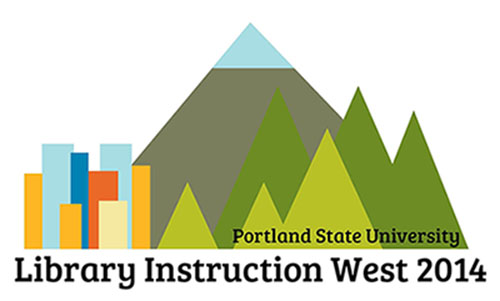Start Date
7-24-2014 3:55 AM
End Date
7-24-2014 4:15 AM
Subjects
Educational technology, Information services -- User education, Academic libraries -- Technological innovations, Evidence-based library science
Description
Purpose – The purpose of this article is to discuss approaches to sustainable decision-making for integrating emerging educational technologies in library instruction while supporting evidence-based practice (EBP).
Design/methodology/approach – This article highlights recent trends in emerging educational technologies and EBP and details a model for supporting evidence informed decision-making. This viewpoint article draws on an analysis of recent literature, as well as experience from professional practice.
Findings – Authors discuss the need for sustainable decision-making that addresses a perceived lack of evidence surrounding emerging technologies, a dilemma that many library educators and practitioner-researchers will have faced in their own library instruction. To support the evidence-informed selection and integration of emerging educational technologies, a two-pronged model is presented, beginning with an articulation of pedagogical aims, alignment of technological affordances to these aims and support of this alignment via hard evidence available in the research literature, as well as soft evidence found in the environmental scan.
Originality/value – This article provides an outline and synthesis of key issues of relevance to library practitioners working within a challenging and ever-changing landscape of technologies available for learning and instruction. The proposed approach aims to create a sustainable model for addressing problems of evidence and will benefit academic librarians considering emerging educational technologies in their own pedagogy, as well as those who support the pedagogy of others.
The presentation associated with this article may be accessed at http://archives.pdx.edu/ds/psu/14544.
Persistent Identifier
http://archives.pdx.edu/ds/psu/14508
Included in
Sustainable Decision Making for Emerging Educational Technologies in Libraries
Purpose – The purpose of this article is to discuss approaches to sustainable decision-making for integrating emerging educational technologies in library instruction while supporting evidence-based practice (EBP).
Design/methodology/approach – This article highlights recent trends in emerging educational technologies and EBP and details a model for supporting evidence informed decision-making. This viewpoint article draws on an analysis of recent literature, as well as experience from professional practice.
Findings – Authors discuss the need for sustainable decision-making that addresses a perceived lack of evidence surrounding emerging technologies, a dilemma that many library educators and practitioner-researchers will have faced in their own library instruction. To support the evidence-informed selection and integration of emerging educational technologies, a two-pronged model is presented, beginning with an articulation of pedagogical aims, alignment of technological affordances to these aims and support of this alignment via hard evidence available in the research literature, as well as soft evidence found in the environmental scan.
Originality/value – This article provides an outline and synthesis of key issues of relevance to library practitioners working within a challenging and ever-changing landscape of technologies available for learning and instruction. The proposed approach aims to create a sustainable model for addressing problems of evidence and will benefit academic librarians considering emerging educational technologies in their own pedagogy, as well as those who support the pedagogy of others.
The presentation associated with this article may be accessed at http://archives.pdx.edu/ds/psu/14544.



Notes
This is the authors' submitted version of an article subsequently published in Reference Services Review, Volume 43 Issue 1. Version of record may be found at http://dx.doi.org/10.1108/RSR-08-2014-0037.
This article is (c) Emerald Group Publishing and permission has been granted for this version to appear here (http://pdxscholar.library.pdx.edu/). Emerald does not grant permission for this article to be further copied/distributed or hosted elsewhere without the express permission from Emerald Group Publishing Limited.